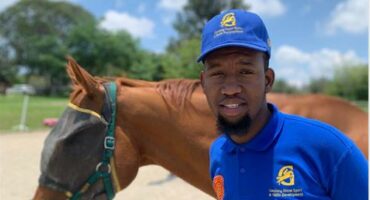Survivors of abuse can seek counselling to improve recovery
JOBURG – Useful contacts for women and children in abusive situations.

Online exclusive
Statistics of abuse in South Africa remain extremely high despite the fact that abuse is often underreported due to the victim’s fear.
This according to Courtney Greene, an occupational therapist at Akeso Clinic Umhlanga.
The World Health Organisation defines abuse as ‘a single, or repeated act, or lack of appropriate action, occurring within any relationship where there is an expectation of trust, which causes harm or distress’. Greene said this description included five subtypes of abuse, namely physical abuse, sexual abuse, neglect and negligent treatment, emotional abuse and exploitation.
She believes that a number of factors may prompt abuse including previous abuse, people with a lack of social support or social resources, those with a substance abuse disorder or mental health disorder.
Greene explained that abuse may cause distorted thinking patterns, depression, post-traumatic stress disorder, drug dependence, eating disorders and anxiety disorders and, therefore, recommended that those experiencing abuse should seek help.
In May, StatsSA revealed that 21 per cent of women (about one in five women) over 18 reported that they had experienced violence at the hands of a partner. In addition, 8 per cent of these women reported that they had experienced violence in the past 12 months of taking the survey.
The Eastern Cape was found to have the highest rate of physical abuse (32 per cent). The survey also showed that it was particularly women living in the lowest wealth quintile that experienced the most physical violence.
“Abused adults and children often require long-term psychological treatment including trauma counselling and psychotherapy in order to treat specific mental health disorders and to learn new ways of dealing with distorted thoughts or feelings,” said Greene.
“If you suspect that a person or loved one is suffering from some or other form of abuse, approach them in a safe place, using a non-judgemental manner. Encourage them to reach out to organisations that can help.”
According to Greene, people who are being abused may:
- Seem eager to please their partner
- Talk about their partner’s temper, jealousy or possessiveness
- Have frequent injuries, with the excuse of accidents
- Frequently miss work, school or social occasions without explanation
- Dress in clothing designed to hide bruises or scars
- Show major personality changes (for example, an outgoing person might become withdrawn).
Organisations where you can seek help if you experience abuse include:
- Akeso 24-hour helpline 086 143 5787
- Family and Marriage Society of South Africa (Famsa) 011 975 7101 or www.famsa.org.za
- Lifeline 24-hour counselling 086 132 2322
- People Opposing Women Abuse (Powa), which provides telephonic counselling and legal support to women experiencing abuse 083 765 1235
- Rape Crisis, which offers free confidential counselling to people who have been raped or sexually assaulted 011 642 4345
- South African Depression and Anxiety Group 011 234 4837.
You can write to us by emailing [email protected]




